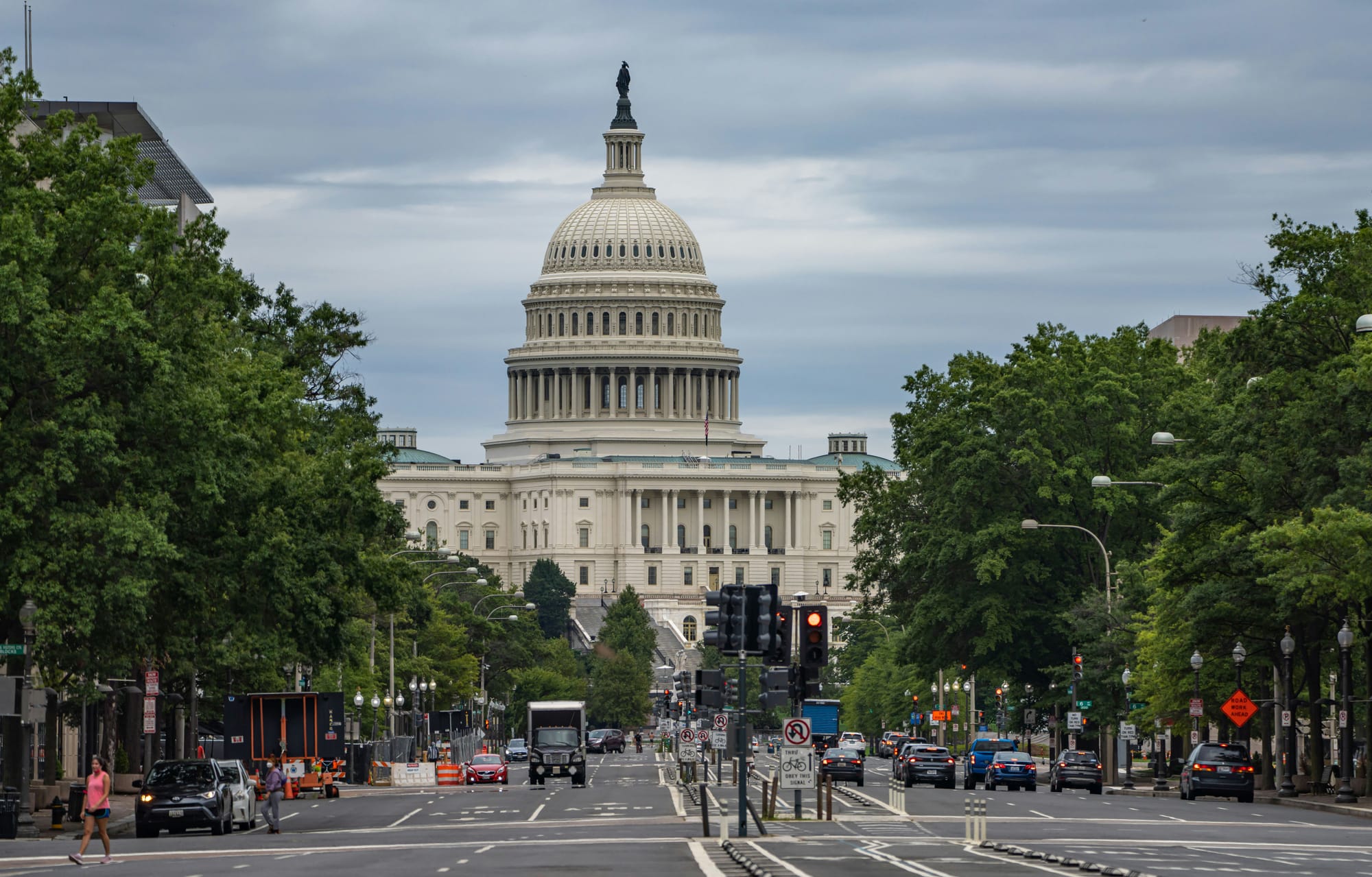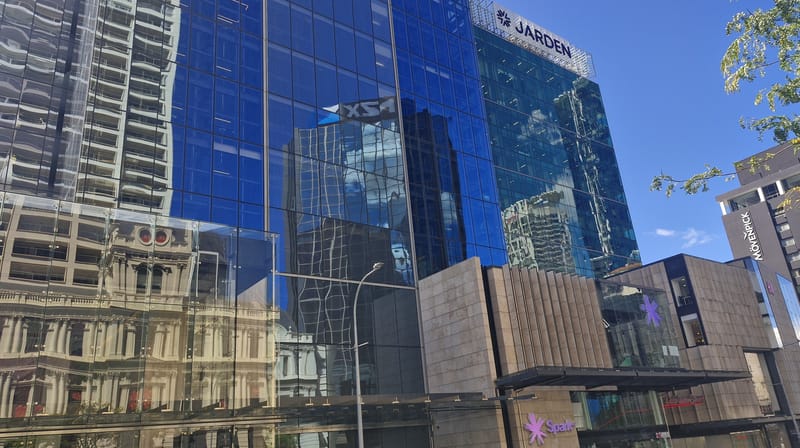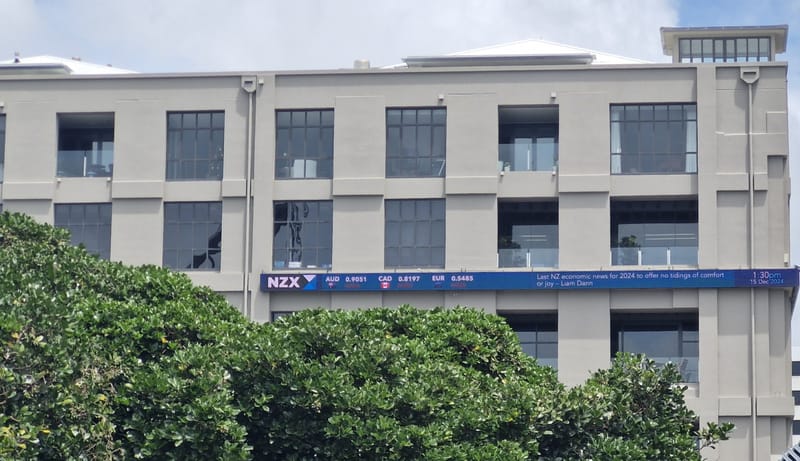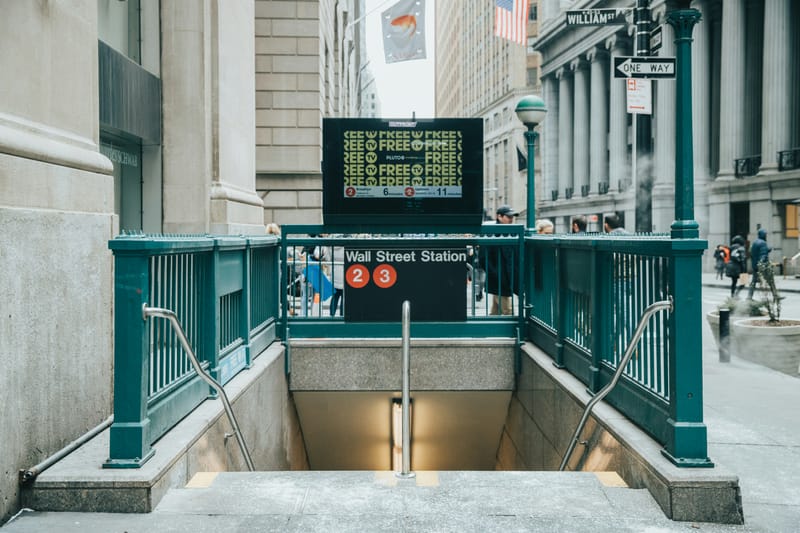Countdown on as US federal govt faces another shutdown
Robinhood’s prediction market has been busy.

Stocks on Wall Street were mixed while the price of gold continued to break new ground as investors face the usual brinksmanship over a potential US federal government shutdown, with President Donald Trump set to meet congressional leaders ahead of the Oct 1 deadline.
The kiwi dollar was treading water and US Treasury yields eased with the prospect of another furlough threatening to delay US jobs figures at the end of the week, meaning the Federal Reserve will have to rely on private datasets when it next meets in October.
Meanwhile, Australia’s submarine deal appears to have survived the Pentagon’s review of the AUKUS defence pact, with Japan’s Nikkei Asia reporting the White House will press ahead with the sale of three Virginia-class subs starting in 2032. Separately, Lockheed Martin rallied on news the US Department of Defense is urging missile suppliers to ramp up production.
And Robinhood led the S&P 500 higher as it surged 9.4% on news the low-cost investment platform operator’s prediction market has been gathering momentum.
Shut it down
Stock markets on Wall Street were mixed as investors are again faced with the prospect of a US federal government shutdown as legislators struggle to find enough common ground to keep the American bureaucracy open.
US President Donald Trump will meet Democratic congressional leaders on Monday to try to broker a deal, although the Polymarkets prediction market is indicating a 73% chance of a partial shutdown.
A key issue for investors is the potential delay to official data, with jobs figures this week seen as a major input for the Federal Reserve in next month’s interest rate decision.
The yield on US 10-year Treasuries dipped 2 basis points to 4.14% and the kiwi dollar traded at 57.79 US cents at 7am in Auckland from 57.84 cents yesterday, while the S&P 500 rose 0.2% and the Dow Jones Industrial Average slipped 0.1%. The Nasdaq Composite was up 0.5% in late trading.
“Prediction markets are implying a 70% chance of shutdown which could delay the publication of key economic data,” Bank of New Zealand senior interest rate strategist Stuart Ritson said in a note. “This includes the September labour market report, which is scheduled for the end of the week, creating uncertainty for investors.”
Shining through
That heightened uncertainty – the CBOE’s volatility index jumped 5.7% – stoked demand for gold, with the precious metal futures up 1.2% at US$3,856 an ounce.
Across the Atlantic, mining stocks rallied with the gold price, helping lift the UK’S FTSE 100 index 0.2%, while Germany’s DAX 30 was marginally higher and France’s CAC 40 increased 0.1%.
Investment platform operator Robinhood led gains on Wall Street’s S&P 500, climbing 9.4% in late trading and on track for a record after chief executive Vlad Tenev said more than 4 billion event contracts have been traded since it launched its prediction market in February.
Meanwhile, Lockheed Martin advanced after the Wall Street Journal reported the US Department of Defense is urging missile suppliers to double or even quadruple production rates.
Separately, Japan’s Nikkei Asia reported the Pentagon will go ahead with the AUKUS defence pact between Australia, the UK and the US and stick to the 2032 timeline kicking off the sale of three Virginia-class nuclear-powered submarines. Australian prime minister Anthony Albanese is scheduled to meet the US president on Oct 20.
The heightened uncertainty is giving few cues to Australasian markets in the final day of the quarter, with Australian futures pointing to a marginal decline for the S&P/ASX 200 index when trading opens across the Tasman.
New Zealand’s S&P/NZX 50 index is on track to outperform its Australian counterpart, having gained 4.2% so far in the September quarter, compared to a 3.8% gain for the ASX200.
Local data today include ANZ’s monthly business confidence survey, while the Reserve Bank of Australia is review monetary policy and expected to keep the target cash rate at 3.6%. The kiwi dollar fell to 87.89 Australian cents from 88.09 cents yesterday.
Reporting by Paul McBeth. Image from Adam Michael Szuscik on Unsplash.







